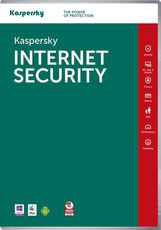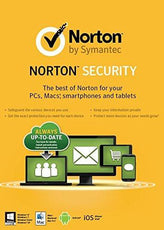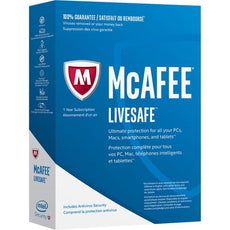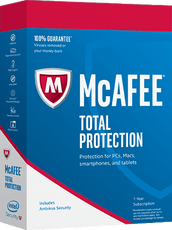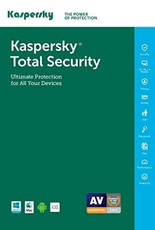BEWARE of text messages from 'Natwest' asking you to verify your account to avoid suspension.
Author: InterSecure.co.uk - Internet Security software
- A text scam is circulating in which fraudsters spoof your bank's mobile number.
- The text pops up in a string of legitimate texts, making it look real.
- It asks you to verify your account to avoid acount suspension.
- The Daily Mail reported that a Santander customer had £71,000 stolen in a similar method.
- The customers bank has refused to refund the money, as it is not their error.

Natwest have confirmed other than the fake message the rest are from them.
This new kind of scam can affect anyone, the message came from what looks like the bank claiming that they need to verify the online account to avoid suspension, it came through in the string of legitimate texts from the Natwest bank. This is a real screenshot from a Natwest customer who received this message.
A customer lost £71,000 from a similar scam
The Daily Mail recently reported that a Santander customer received a similar text, the text informed her that there had been suspicious activity on her account, and that her debit card had been used in a shop. It then advised her to call a 'fraud prevention' number if she did not recognise the transaction.
The customer did not think this was strange because it was in the legitimate thread where she had received all her security codes and messages from Natwest.
The woman said that the man on the line seemed lovely and built a rapport with her, he was able to convince her to confirm her bank details and they promised to send out a new card within 3 days, they told her to dispose of her original card.
Only when she did not receive the new card did she call her bank to be told that all her savings had been taken.
According to the Daily Mail Santander only reimbursed £400, and retrieved £1,850 from the scammers bank account. Santander said: 'When there has been no Santander error and customers have divulged personal and security information, we cannot accept any responsibility for the losses on the account.'
In this Natwest case the customer did the right thing.
When this Natwest customer received this text, she did not click on the link, she contacted Natwest directly by ignoring the message and going to her Natwest account online, when she called Natwest they confirmed that they did not send this message.
InterSecure believes that this could have been sent to hundreds of thousands of customers.
This kind of scam is called SMiShing. The fraudsters may have stolen the information from the dark web and sent out messages using sophisticated systems. It is not hard to fall for this kind of scam.
Getsafeonline.org explains how it works:
You receive a fraudulent text claiming to be from a trusted organisation or individual being impersonated by criminals, including the following:
- Your bank, informing you that there is a ‘problem with your account’ such as irregular activity or lack of funds.
- A retailer, offering ‘vouchers’ or ‘gift cards’.
- A technology provider such as Apple or Google, notifying that you ‘need to validate an account’.
- A parcel delivery company, notifying you that you need to ‘confirm that you want a parcel to be delivered’.
- HMRC, informing you that you are ‘due a tax refund’.
Practical advice on how to protect yourself:
What all smishing messages have in common is:
- They instruct you to either go to a website or make a phone call to a specified number.
- They play on your basic human emotions and needs, such as trust, safety, fear of losing money, getting something for nothing, eagerness to find a bargain or desire to find love or popularity/status.
- They generally state or imply the need for your urgent action to either avoid an issue or take advantage of an offer.
Websites you visit via smishing messages generally either request confidential details or cause your internet-connected mobile device to be infected with malware.
Phone calls you make in response can either result in confidential details being requested, or be to a premium rate number resulting in exorbitant charges being added to your phone bill.
How to avoid becoming a victim of smishing:
- Do not click on links in text messages unless you are 100% certain that they are genuine and well-intentioned.
- Take time to consider your actions before responding to text messages.
- Ask yourself if the sender, if genuine, would really contact you via this text. Recognise threats of financial issues or offers that seem too good to be true, for what they really are.
- If in doubt, call the correct number of the organisation or individual from whom the text claims to have been sent, to check its authenticity.
- Remember that even if the text message seems to come from someone you trust, their number may have been hacked or spoofed.
- Do not respond to the text message. Doing so could result in your details being added to a ‘suckers’ list’ and you will be inundated with similar messages.
- Dial 7726 (or for Vodafone subscribers, 87726). This will enable your mobile network provider to take early action to block numbers that are generating spam – including scam texts – on their networks, and report them to the regulators.
- Report spam text messages directly to your mobile phone provider free of charge by forwarding them to 7726 from the device they are received on.
- 'Which Consumer Group' also operates an online reporting service for scam texts and phone calls, here: www.which.co.uk/consumer-rights/advice/how-to-deal-with-spam-text-messages
- If you have lost money as a result of a smishing text, or via any other fraudulent activity Report it to Action Fraud, the UK’s national fraud reporting centre by calling 0300 123 20 40 or by visiting www.actionfraud.police.uk





